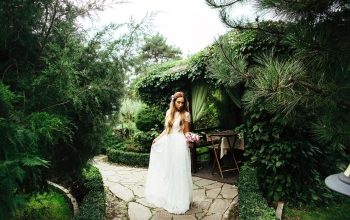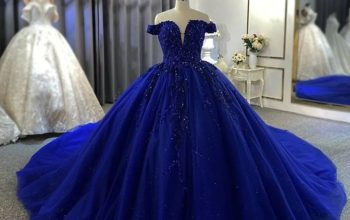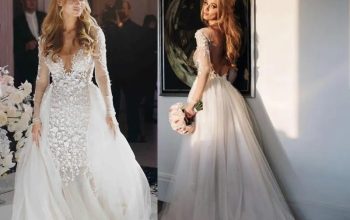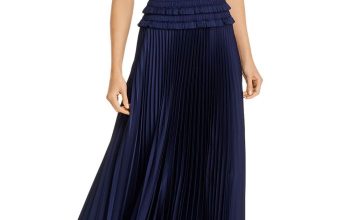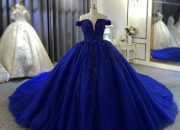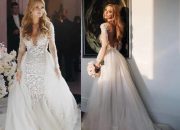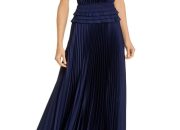Choosing the Perfect Formal Wedding Guest Dress
Formal dresses to wear to a wedding – Attending a wedding requires careful consideration of your attire. Selecting the right formal dress involves understanding dress styles, fabrics, accessories, and etiquette. This guide provides a comprehensive overview to help you find the perfect outfit for any formal wedding.
Types of Formal Wedding Dresses, Formal dresses to wear to a wedding
Several dress styles are suitable for formal weddings, each offering a unique silhouette and aesthetic. The choice depends on personal preference, body type, and the wedding venue.
| Dress Style | Neckline | Sleeve Length | Fabric Suggestions |
|---|---|---|---|
| A-line | V-neck, sweetheart, round | Sleeveless, short sleeves, long sleeves | Chiffon, silk, crepe |
| Mermaid | Strapless, halter, one-shoulder | Sleeveless, cap sleeves | Lace, satin, silk |
| Ballgown | Sweetheart, off-the-shoulder, bateau | Sleeveless, three-quarter sleeves | Tulle, organza, satin |
| Sheath | Round, boat neck, V-neck | Sleeveless, short sleeves, three-quarter sleeves | Crepe, jersey, silk |
A-line dresses are universally flattering and suitable for various venues. Mermaid gowns are elegant for formal settings like churches or upscale hotels. Ballgowns are ideal for grand venues but might be less practical for outdoor weddings. Sheath dresses offer a sleek, sophisticated look appropriate for most settings.
Accessories for each style include:
- A-line: Delicate jewelry, a clutch, and heels.
- Mermaid: Statement earrings, a small structured bag, and elegant heels.
- Ballgown: Simple jewelry, a small clutch, and elegant heels or flats.
- Sheath: Bold jewelry, a structured handbag, and stylish heels.
Fabric and Color Choices for Wedding Guest Dresses
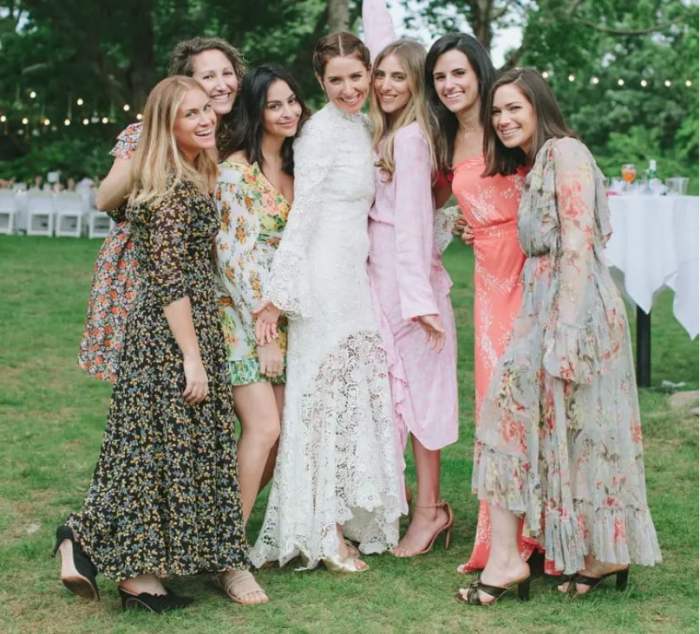
Source: hernandezweddings.com
Fabric selection is crucial for comfort and appropriateness. Color choices must also adhere to wedding etiquette.
Appropriate fabrics include:
- Summer: Silk, chiffon, cotton blends
- Winter: Velvet, brocade, heavier silks
Avoid wearing white, ivory, or shades very close to the bride’s dress color. Black is generally acceptable for evening weddings, but it’s best to avoid it for daytime events unless the dress code specifies otherwise. Bright red can be striking but should be considered carefully in relation to the wedding’s overall color scheme.
Fabric drape varies depending on the fabric and body type. Lightweight fabrics like chiffon flow well and are suitable for most body types, while heavier fabrics like velvet can be more flattering on curvier figures.
Accessorizing Formal Wedding Guest Dresses
Accessories elevate a formal outfit. A well-chosen selection enhances the dress and reflects personal style.
Accessory options include:
- Jewelry: Statement necklaces, delicate earrings, bracelets, rings. Consider the neckline of your dress when choosing jewelry.
- Handbags: Clutches, small structured bags, or a simple crossbody bag (avoid large, bulky bags).
- Shoes: Heels, elegant flats, or stylish sandals. The choice depends on the venue and personal preference.
- Wraps: Boleros, pashminas, or stoles can add warmth and style, especially for evening weddings or cooler weather.
Coordinate accessories with your dress’s color and style. For example, a bold necklace might pair well with a simple sheath dress, while delicate jewelry complements a more elaborate ballgown. Avoid clashing colors or overly flashy accessories.
Accessories to avoid include overly casual items like sneakers, large backpacks, and overly flashy jewelry that might overshadow the dress.
Finding the Perfect Fit and Alterations
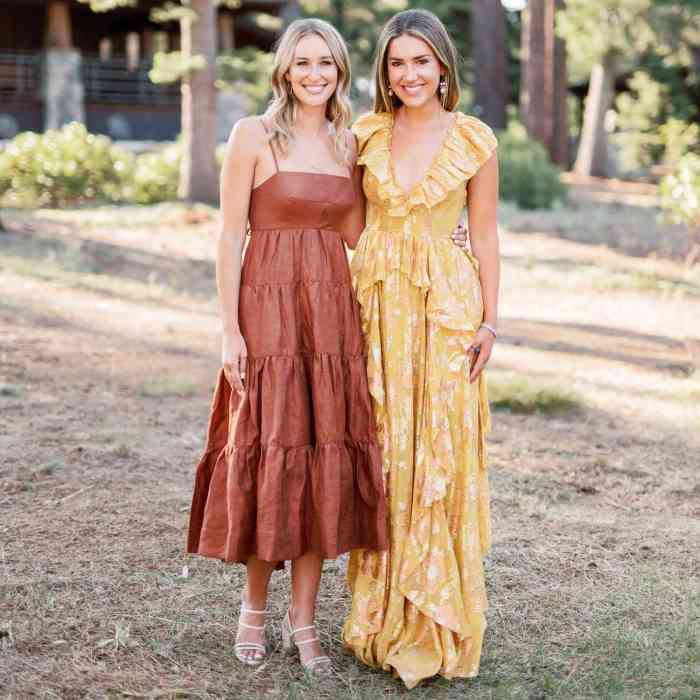
Source: brides.com
Finding a well-fitting dress is paramount for comfort and a polished look. Professional alterations can ensure the perfect fit.
To find a well-fitting dress:
- Measure yourself accurately.
- Consider your body shape when selecting styles.
- Try on dresses in different sizes.
- Pay attention to the fit around the shoulders, waist, and hips.
Common alterations include hemming, taking in the waist or sides, adjusting straps, and altering sleeve lengths. Costs vary depending on the complexity of the alterations and the tailor’s rates.
Finding a reputable tailor involves seeking recommendations, checking reviews, and discussing the alterations needed in advance.
Etiquette and Dress Code Considerations
Understanding dress codes and wedding etiquette is crucial for choosing appropriate attire.
Formal dress codes include:
- Black-tie: Floor-length gowns or elegant cocktail dresses are appropriate.
- Cocktail attire: Knee-length or midi dresses are suitable.
Consider the wedding’s location (church, beach, garden) and time of day (daytime or evening). Dress length should generally be appropriate for the venue and time of day. Avoid anything too revealing or overly casual.
Budgeting and Shopping for Formal Dresses
Planning a budget helps manage expenses and find the best value for your money.
Budget breakdown (example):
- Dress: $200 – $500
- Alterations: $50 – $150
- Accessories: $50 – $100
Shopping options include department stores, boutiques, and online retailers. Department stores offer a wide selection, boutiques provide more personalized service, and online retailers offer convenience and potentially lower prices. Finding affordable yet stylish dresses involves looking for sales, using discount codes, and shopping at off-price retailers.
Helpful Answers: Formal Dresses To Wear To A Wedding
What is the difference between cocktail attire and black-tie?
Cocktail attire is generally less formal than black-tie. Cocktail dresses are usually knee-length or slightly below, while black-tie requires floor-length gowns.
Can I wear a jumpsuit to a formal wedding?
While less traditional, a sophisticated, well-tailored jumpsuit in a luxurious fabric can be appropriate for some formal weddings, especially if the invitation suggests a less strictly formal dress code.
Choosing the right formal dress for a wedding can be a fun yet challenging process. Finding a flattering and stylish option is key, and the selection expands considerably when considering different body types. For those seeking elegant options in larger sizes, a fantastic resource is available: plus size formal wedding guest dresses. Ultimately, the perfect formal wedding guest dress depends on personal preference and the wedding’s formality, ensuring you feel confident and comfortable throughout the celebration.
How far in advance should I start shopping for a wedding guest dress?
It’s recommended to start shopping at least 2-3 months before the wedding to allow time for alterations and potential shipping delays, especially if ordering online.
What should I do if the dress I ordered doesn’t fit perfectly?
Seek a reputable tailor for alterations. Minor adjustments are often manageable, but significant alterations might impact the overall cost.
Is it okay to wear white to a wedding?
Generally, it’s best to avoid white, as it’s traditionally reserved for the bride. Off-white or ivory shades are also usually best avoided.

